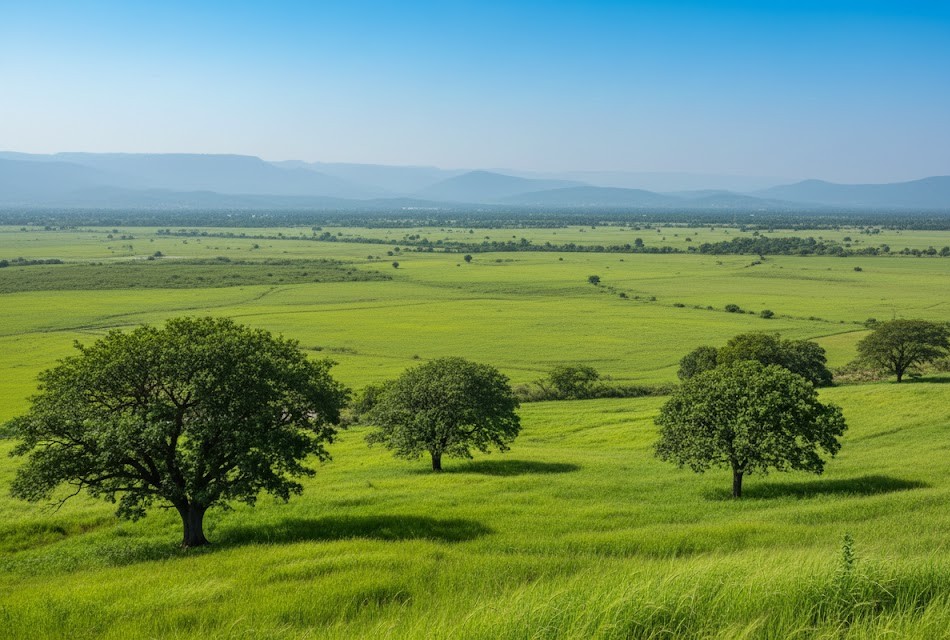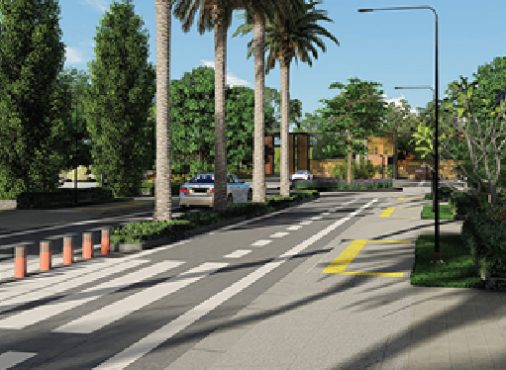Every Non-Resident Indian (NRI) faces that one moment where they long to purchase a piece of land in their own homeland. With all the excitement and the never-ending queries, one question sparks the most confusion: can NRIs actually buy land in India?
The answer is yes and no. NRIs enjoy wide freedom to purchase residential property in India, but there are clearly defined boundaries, especially when it comes to agricultural land, plantations, and farmhouse plots, under the Foreign Exchange Management Act (FEMA) and monitored by the Reserve Bank of India (RBI).
Read on to know why residential villa plots in Mumbai, such as Rustomjee Belle Vue in Kasara, are a compliant and smart alternative.
What FEMA Regulations Say About NRI Land Ownership
To bring order, transparency, and accountability to foreign real estate investments, India introduced the Foreign Exchange Management Act, 1999. The act governs property acquisition by NRIs and PIOs (Persons of Indian Origin).
In alignment with this, real estate in India also operates under MahaRERA, which reinforces transparency and consumer protection, giving buyers greater confidence and clarity in every transaction.
What NRIs May Freely Purchase (General Permission Under FEMA)
NRIs can buy, without special approval:
- Residential property
- Commercial property
- Residential plots meant for the construction of homes
- Commercial space investments
This is categorised as general permission, meaning no RBI approval is required.
What NRIs Cannot Buy
NRIs cannot purchase the following:
- Agricultural land
- Plantation property
- Farmhouse plots
Unless they inherit such land, or receive explicit RBI approval (which is rare and difficult to obtain). These rules form the backbone of acquisition restrictions that every NRI investor must understand.
Why NRIs Are Blocked from Buying Agricultural Land
Many NRIs dream about coming back to India and owning a lush mango orchard, farmhouse, or coffee plantation property. While dreamy, FEMA adds farmhouse restrictions for practical national reasons:
- Agriculture is India’s Lifeline: Agricultural land is linked to food security and farmer livelihood, and has state-controlled land reforms. Allowing wealthy offshore buyers to purchase agricultural land could distort market prices, push genuine cultivators out, and convert essential agricultural land into speculative assets.
- Policy Protects Cultivators: States want farmland in the hands of people who actively cultivate it and depend on farming for their livelihood. An NRI who can’t legally engage in agricultural activities doesn’t meet this criterion.
- State Land Laws Strengthen the Ban: Most states have their own land ceilings and restrictions, making agricultural ownership by NRIs extremely difficult, even if they weren’t barred under FEMA. So yes, the ban isn’t just legal; it is principled.
Read Also: NRI Real Estate Guide: Investing in BKC for Luxury Living & Long-Term Returns
The Big Exception: NRIs Can Inherit Agricultural Land
While NRIs cannot purchase agricultural land, they can inherit it from parents, grandparents, and relatives with Indian origins. To claim their inheritance rights, NRIs need their legal heir certificate, succession document, and property title papers.
However, FEMA puts conditions:
- NRIs can’t freely sell this land to another NRI.
- Sale is usually restricted to resident Indian buyers.
- Gifting agricultural land to NRIs is restricted.
- If they choose to sell and transfer funds abroad, repatriation limits apply.
Villa Plots as Smart Alternative to Agricultural Land Investment
Many NRIs want to buy land that becomes like a second home to them. In fact, NRIs made up about 10% of total real estate investments in 2019–20; that share rose to 15% in 2023 and is projected to hit 20% by 2025.
A prime location offering this is the Rustomjee Belle Vue, Kasara. A stunning, fully legal, MahaRERA-approved township featuring ready-to-build residential plots with sizes ranging from 2,000 to 7,000 sq. ft. located in Sahyadri Hills.
With a distance of 98km from Mumbai, it additionally offers excellent connectivity via Kasara Railway Station and Samruddhi Mahamarg Expressway. This 88-acre gated community offers:
- 40% open green spaces
- Landscaped native flowering trees
- Sustainable architectural planning
- Clubhouses, recreation zones, and nature amenities
For NRIs thinking of retirement planning, building a holiday retreat, or a future family asset, this is a FEMA-compliant, risk-free investment option.
Banking Rules: How NRIs Must Pay for Property Purchases
There are certain rules to be followed when it comes to NRI real estate investment payment options:
| Allowed Payment Methods | Prohibited Methods |
| NRE (Non-Resident External) Account | Direct payment in foreign currency |
| NRO (Non-Resident Ordinary) Account | Cash transactions |
| FCNR (Foreign Currency Non-Resident) Deposits | |
| Direct inward remittances through authorized banking channels |
Indian banks and housing finance companies may provide up to 80% home loan financing and repayment through NRE/NRO/FCNR accounts. Even builders like Rustomjee offer flexible schemes such as 20:80 payment plans, where 20% is paid upfront and 80% is paid at agreed stages or via a loan, reducing upfront cash pressure for NRIs wanting to buy land.
Read Also: Tax on Rental Income in India for NRIs: What You Need to Know
Documentation Requirements for NRI Property Acquisition
NRI real estate investment in India requires standard documentation, such as:
Identity & Personal Documents
- Indian passport
- OCI/PIO card (if applicable)
- PAN card
- Overseas proof of address
Property-Related Documents
- Title deed
- Encumbrance certificate
- Sale agreement
- NOC(s) from authorities
Optional but Highly Useful: Power of Attorney (PoA). A POA lets a trusted person in India sign agreements, submit documents, pay dues, and attend registration. For NRIs unable to travel frequently, a POA is almost essential.
RBI Reporting: Some transactions may require filing Form IPI-7 within 90 days, especially when using inward remittance.
Investment Benefits of NRI-Compliant Residential Land Near Mumbai
Kasara is rapidly emerging as a hotspot, and not just because of the regulatory clarity.
| Benefit | Key Highlights |
| Location Advantage |
|
| Capital Appreciation Potential |
|
| Rental Yield Opportunities |
|
| Currency Advantage for NRIs |
|
| Portfolio Diversification |
|
Conclusion
NRIs cannot purchase agricultural or farmhouse land in India, but they are fully permitted to invest in residential and commercial property, including villa plots. This makes planned communities like Rustomjee Belle Vue in Kasara a smart choice, offering legal clarity, MahaRERA compliance, strong appreciation prospects, modern amenities, and convenient connectivity to Mumbai.
It gives NRIs the chance to own a weekend home, retirement base, or long-term investment without legal complications, blending nature, comfort, and future financial security. Explore Rustomjee Belle Vue and invest with confidence in a legally secure, high-growth NRI-friendly development.
FAQs
- Can NRIs purchase agricultural land under any circumstances?
No. NRIs cannot buy agricultural land in India. The only exception is when the land is received through legal inheritance. In extremely rare cases, an individual may obtain special permission from the RBI, but this is uncommon and difficult to secure.
- Are there location restrictions in Maharashtra?
NRIs can purchase residential land anywhere in Maharashtra, provided the property is legally categorized as non-agricultural land and has received the necessary approvals from regulatory bodies such as MahaRERA.
- Can NRIs convert inherited agricultural land into residential land?
Yes, but only after obtaining multiple approvals, including permissions from the state revenue department, urban planning authorities, and land-use conversion clearances. Without these, conversion is not legally valid.
- What are the penalties for violating FEMA rules?
Violations can result in monetary penalties, legal proceedings, and even orders requiring reversal of the transaction. In serious cases, authorities may initiate land seizure processes as well.
- How can NRIs verify MahaRERA registration?
NRIs can check a project’s compliance by visiting the official MahaRERA website and verifying the developer’s name, project registration number, and the list of permissions and approvals granted for the development.







